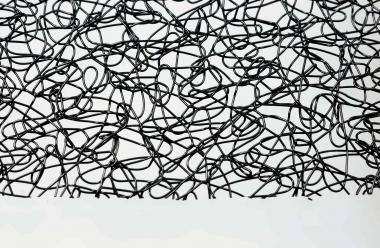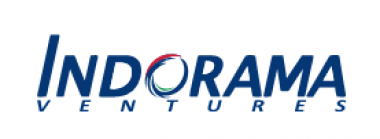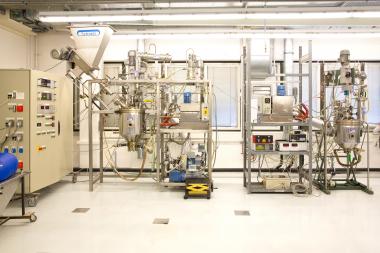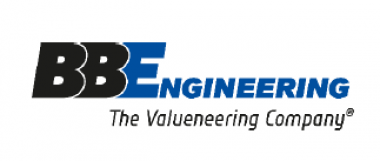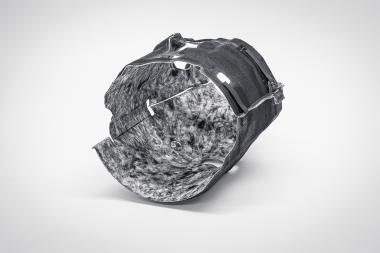B.I.G. Yarns launches Sustainable Yarns at Clerkenwell Design Week
B.I.G. Yarns unveils its new “SustainableYarns” platform, with Clerkenwell Design Week visitors the first to be invited to get on board and focus on what matters most for the design and manufacture of sustainable soft floorings.
The expert in polyamide (PA) 1 step 3 ply yarns offers a range of options for manufacturers to introduce sustainable yarns into carpet solutions and reach sustainability targets faster and more efficiently.
The Sustainable Yarns range creates opportunities to design with recycled content yarn (EqoCycle), to work with renewable resources (EqoBalance), and, following the launch of new polyamide 6 (PA6) EqoYarn at Clerkenwell Design Week, to also leverage the low-impact value chain.
New addition EqoYarn is a new low-impact PA6 carpet yarn based on the most recent innovations in polymer production, which enable yarn manufacturers to lower their carbon footprint by nearly 50% and give carpet manufacturers more options to reduce their impact.
For its EqoYarn Bulk Continuous Filament (BCF) production process, B.I.G. Yarns has selected the few best-in-class partners that have made major steps forward in terms of sustainability, and reduced their greenhouse gas emissions thanks to continuous investments in process efficiency, green energy, heat optimization and waste reduction. The result is EqoYarn with a carbon footprint of 4 kg CO2 eq/kg yarns, which is a CO2 reduction of up to 50% compared to conventional PA yarns.
EqoBalance PA6 yarns enable customers to reach an even higher CO2 reduction of up to 75%. Manufactured with polymers made from renewable resources such as organic waste from cooking oil instead of virgin or fossil feedstock, these yarns have a carbon footprint of 1.98 kg CO2 eq./ kg yarns. They help carpet manufacturers to create products with an extremely low carbon footprint.
EqoCycle PA6 yarns are fully recyclable and incorporate 75% recycled content originating from recycled and regenerated PA6 granules. With a carbon footprint of 4.64 kg CO2 eq./ kg yarns, they deliver the same high-quality performance of virgin PA6 yarn with the benefit of 37% CO2 reduction. EqoCycle yarns offer carpet manufacturers a sustainable alternative to help reduce the ecological footprint of their products and move towards a circular economy without jeopardizing the end-product quality.
In addition to the different CO2-reducing options, B.I.G. Yarns’ customers can access an unlimited colour range to elevate their designs. Its BCF technology for polyamide yarns, twisted and heat-set yarns, one-colour to multi-colour, between 650 and 15000 dTex, along with its colour studio, are available to support their creation of customised collections.
Beaulieu International Group








